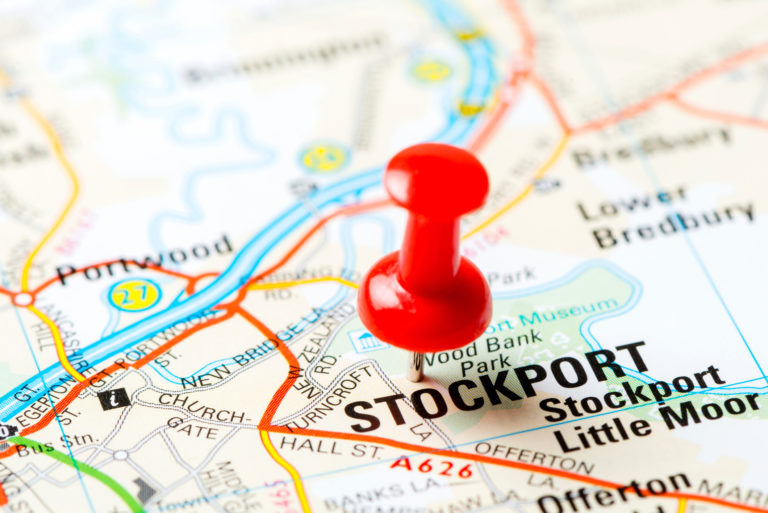The latest house price index from HM Land Registry has revealed a 12.8% annual uplift, with the average UK home now worth £283,000.
The average home in the UK is now worth around £32,000 more than it was this time last year, according to the most recent house price index released this week by the Office for National Statistics (ONS). In England specifically, the increase was even higher, at 13.1%.
The highest annual house price growth was in the south west of England, where prices increased by an average of 16.9% in the year to May 2022. This was up from a growth rate of 14.7% in April 2022.
Conversely, London remains the region with the lowest annual house price growth, with an 8.2% increase during the same timeframe. This is up from the 6.9% rise recorded in April 2022.
Since the beginning of the year, many property industry experts have warned of a slowdown, with some sombre forecasts being published. However, some of these forecasts have since been revised, as each house price index released paints a picture of a much slower climb down.
The experts’ view on the house price index
Nathan Emerson, CEO of Propertymark, says: “Unlike the weather, the housing market is showing signs of cooling down. For the first time since the pandemic-induced housing boom, estate agents are now seeing a few homes for sale actually reducing their marketing price.
“Our latest monthly data which shows a 12 per cent increase in the number of buyers securing a home for under the asking price since March. As the latest ONS figures cover May, we would expect in the coming reports that our trend is reflected in the average house price.
“Supply of homes is still very low, and buyers are still keen, so sellers are continuing to enjoy healthy prices, but there is certainly a soft calming of the exceptional buyer behaviour which we previously saw.”
Richard Eagling, personal finance expert at NerdWallet, said: “A cooling off period for the property market still seems to be in the offing, and it is always important to note that the ONS house price index tracks a couple of months behind others, so it was unlikely that today’s data would show any slowdown in price growth just yet.
“Many prospective homebuyers will be watching prices with great interest, deciding when the right time is to act. As with any financial commitment, it is imperative that individuals first evaluate all facets of their financial situation, including their personal savings, credit ratings, outstanding debts, and income.
“Once this is completed, they can adjust their budget and factor in higher costs – and potentially reassess their home search.
“Additionally, would-be homebuyers must carefully evaluate any mortgage offers, and research the best deals available in terms of rates and loan-to-value options. Making use of online tools such as comparison sites can be helpful here, as it can speed up the process.
“It remains to be seen whether the dual challenge of rising interest rates and inflation will cause house prices to stabilise or deflate a little after a two-year period of remarkable growth. But byers who do their research and preparation now will put themselves in the best position to act when the time is right for them.”
Sense of urgency
Richard Davies, MD of Chestertons, says: “May of this year surpassed May 2021’s market performance when we had the added stamp duty incentive. This indicates that buyer confidence has returned despite economic challenges.
“With the Bank of England putting up interest rates more than once this year, many house hunters have also established a stronger sense of urgency to buy before further rate hikes.
“Our branches receive enquiries from families, couples and investors but, particularly post-pandemic, we are seeing an uplift in the number of international students, international buyers as well as office workers who require a pied-à-terre closer to work.”
James Briggs, head of personal finance intermediary sales at specialist lender Together, said: “We’re continuing to see rising house prices, primarily because the demand for homes is still outstripping supply. The housing market remains in relatively good health and can be seen as an outlier compared to other areas of the economy, which is beginning to buckle under rising inflation of more than 9%.
“These inflationary pressures are being driven by rising household bills for essentials such as food and fuel, heavily impacting on the cost of living for many. Wages are failing to keep pace with the highest inflation in 40 years, meaning affordability is becoming a major issue for would-be homebuyers.
“This, coupled with the current political uncertainty, is likely to lead to a cooling in the housing market going forwards as buyers hold out for better financial certainty before committing to large purchases, with all signs pointing to a house price slowdown in the coming months.”
The ONS house price index uses data from data from HM Land Registry, Registers of Scotland, and Land and Property Services Northern Ireland. While this looks at sold price, the house price index from Rightmove relies mainly on asking prices, as does the index released by Zoopla.










